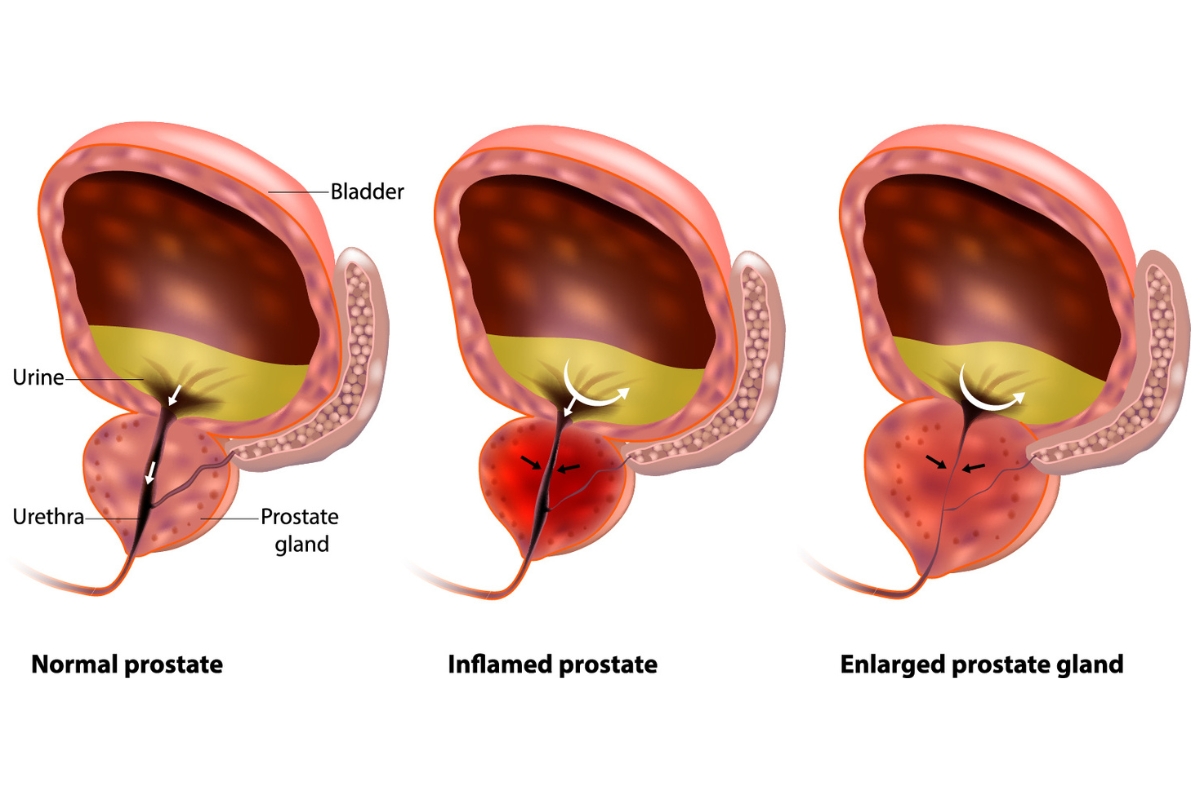BPH Medical Treatment in Daytona Beach
Relieve the Discomfort of An Enlarged Prostate
Benign Prostatic Hyperplasia (BPH) is a non-cancerous enlargement of the prostate gland most common in men over 50. A minimally invasive treatment option for BPH is Prostate Artery Embolization (PAE), a nonsurgical and outpatient procedure which provides fast relief.

Common symptoms of BPH
Because BPH compresses the urethra, it can lead to a range of Lower Urinary Tract Symptoms (LUTS) including:
- Difficult, weak, or interrupted urination
- Frequent or urgent urination, including at night
- Sensation of incomplete bladder emptying
Advantages of Prostate Artery Embolization
PAE is a safe and effective option for men seeking relief from BPH symptoms. During the state-of-the-art procedure, a specialty-trained doctor will introduce a small catheter into your artery and deliver microscopic particles into the blood flow of the prostate gland. This decreases the blood supply to and shrinks the prostate, relieving symptoms. Benefits include:
Minimally Invasive Procedure
PAE requires only a small catheter insertion in the wrist or the groin — no incisions or general anesthesia.
Healthier Outcomes
PAE is associated with less risk of complications including incontinence, sexual dysfunction, or bleeding than surgical treatments.
Quick Recovery
Patients undergoing PAE experience shorter recovery times and can return to normal activities usually within a couple of days.
Outpatient Care
PAE is usually performed on an outpatient basis, avoiding the need for overnight hospitalization.
Effective Results
Clinical studies show PAE effectively relieves BPH symptoms, reduces prostate size, and offers lasting results for over 76% of patients.
Patient Testimonials
FAQs
Any patient with an enlarged prostate is a candidate for this procedure. Prior to the procedure, the ISF specialty doctor will review the patient’s specifics.
The procedure takes about two hours.
This procedure is performed with conscious sedation which allows patients to sleep comfortably throughout the procedure without general anesthesia.
Most patients experience an improvement within one week and dramatic improvement within one month. Symptoms continue to improve over six months post-procedure.
Yes, PAE is covered by insurance.
Yes, patients who are on antiplatelet medications such as Aspirin, Plavix, or blood thinners such as Eliquis or Coumadin are candidates for this procedure and are not required to stop taking them.